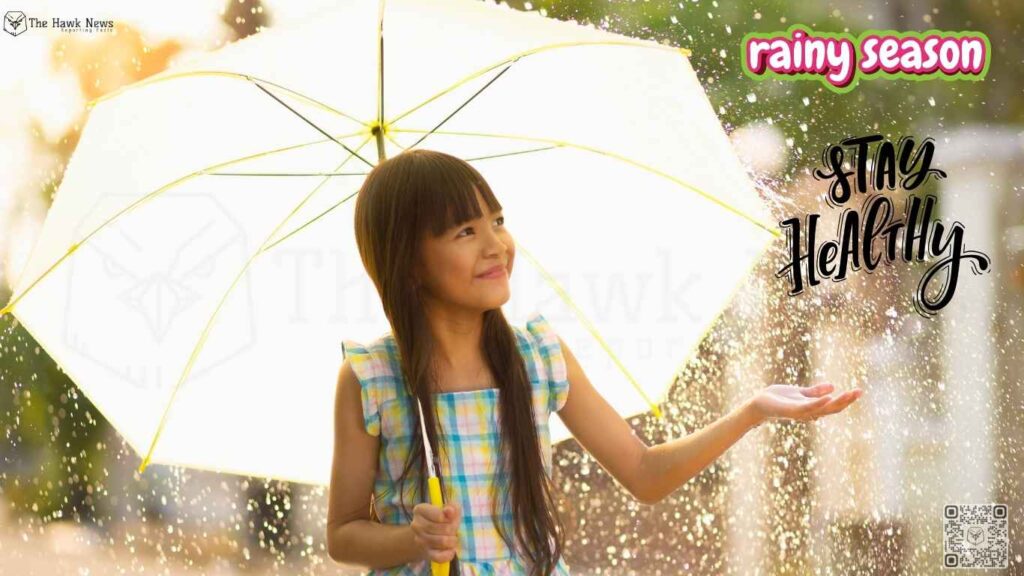
The rainy season, often celebrated for its refreshing downpours and lush landscapes, also brings a host of health risks that can impact our well-being. From increased humidity to stagnant water, the environment becomes conducive to various diseases, particularly those that are waterborne or linked to allergies.
Understanding these risks and taking proactive steps can help you navigate this season while maintaining good health and hygiene. This article delves into the health challenges of the rainy season and provides practical tips for staying safe and healthy.
Health Risks Associated with the Rainy Season
1. Waterborne Diseases
One of the most significant health concerns during the rainy season is the outbreak of waterborne diseases. Heavy rainfall can lead to flooding, which often contaminates drinking water sources. Common waterborne diseases include:
- Cholera: A severe intestinal infection caused by consuming contaminated water or food, leading to dehydration and potentially life-threatening complications.
- Typhoid Fever: Caused by the bacterium Salmonella typhi, this disease spreads through contaminated food and water, presenting symptoms like high fever, abdominal pain, and fatigue.
- Hepatitis A: A viral infection that affects the liver, commonly transmitted through contaminated water, resulting in jaundice, fatigue, and gastrointestinal discomfort.
2. Vector-Borne Diseases
The rainy season also creates a breeding ground for mosquitoes and other vectors that carry diseases. Key diseases include:
- Dengue Fever: Transmitted by Aedes mosquitoes, dengue can cause severe flu-like symptoms and, in severe cases, can lead to dengue hemorrhagic fever.
- Malaria: Spread by Anopheles mosquitoes, malaria remains a significant health threat in many tropical and subtropical regions, causing fever, chills, and flu-like symptoms.
- Leptospirosis: This bacterial infection can occur when people come into contact with water contaminated by animal urine, often seen in flooded areas.
3. Allergies and Respiratory Issues
The rainy season also brings increased humidity, which can exacerbate allergies and respiratory problems. Common issues include:
- Mold and Mildew: Damp environments are conducive to mold growth, which can trigger allergic reactions and respiratory issues in sensitive individuals.
- Pollen: While pollen counts generally decrease during heavy rains, certain plants may release more pollen after rainfall, potentially affecting allergy sufferers.
- Cold and Flu: The transition between warm and cool temperatures during this season can increase susceptibility to colds and flu viruses.
Practical Tips for Maintaining Health and Hygiene
To mitigate the health risks associated with the rainy season, it’s essential to adopt preventive measures. Here are some practical tips for staying healthy and hygienic during this time:
1. Safe Drinking Water Practices
- Boil Water: Always boil water before drinking, especially if it comes from an untested source. Boiling effectively kills harmful bacteria and viruses.
- Use Water Purifiers: If available, use water purification tablets or filters to ensure safe drinking water.
- Store Water Safely: Store drinking water in clean, covered containers to prevent contamination.
2. Food Safety Measures
- Cook Thoroughly: Ensure that food is cooked thoroughly and served hot to kill any potential pathogens.
- Wash Fruits and Vegetables: Rinse fruits and vegetables with clean water before consumption. If possible, peel them to reduce the risk of contamination.
- Avoid Street Food: While tempting, street food during the rainy season may pose a higher risk of foodborne illnesses. Opt for freshly prepared meals from reputable sources.
3. Preventing Vector-Borne Diseases
- Use Mosquito Repellents: Apply mosquito repellents containing DEET or picaridin to exposed skin, especially during the evening when mosquitoes are most active.
- Wear Protective Clothing: Dress in long sleeves and pants to minimize skin exposure, and consider treating clothing with permethrin for added protection.
- Eliminate Standing Water: Regularly check your surroundings for standing water and eliminate any potential breeding grounds for mosquitoes.
4. Hygiene Practices
- Regular Handwashing: Wash your hands frequently with soap and clean water, especially before meals and after using the restroom. Hand sanitizers can be useful when soap and water are unavailable.
- Keep Living Spaces Dry: Maintain good ventilation in your home to reduce humidity levels. Use dehumidifiers if necessary, and promptly address any leaks or water damage.
- Clean Up Mold: If mold appears, clean it up immediately using a mixture of water and detergent. For larger infestations, consider seeking professional help.
5. Managing Allergies and Respiratory Health
- Stay Indoors During Heavy Rains: If you are prone to allergies or respiratory issues, try to stay indoors during heavy rains to avoid exposure to mold and allergens.
- Use Air Purifiers: Consider using air purifiers equipped with HEPA filters to reduce indoor allergens and improve air quality.
- Consult a Healthcare Provider: If you experience severe allergy symptoms or respiratory issues, consult a healthcare provider for appropriate treatment.
Staying Informed and Prepared
Being informed about the health risks associated with the rainy season is essential for effective prevention. Stay updated on local health advisories and weather conditions that may affect your community. Additionally, consider the following:
- Get Vaccinated: Stay up to date with vaccinations, especially for diseases like hepatitis A and typhoid fever, particularly if you are in a high-risk area.
- Educate Others: Share information about health and hygiene practices with family and friends, helping to create a community that prioritizes well-being during the rainy season.
Conclusion
The rainy season, while bringing relief and rejuvenation to nature, also presents various health challenges that require vigilance and proactive measures. Understanding the health risks associated with this season, particularly waterborne and vector-borne diseases is crucial for protecting yourself and your loved ones.
By adopting practical hygiene and health practices, you can enjoy the beauty of the rainy season while minimizing health risks.
Embrace the season with awareness and preparedness, and prioritize your health and hygiene to ensure a safe and healthy rainy season. With the right precautions, you can navigate this time of year confidently, appreciating the natural beauty and fresh beginnings it brings.